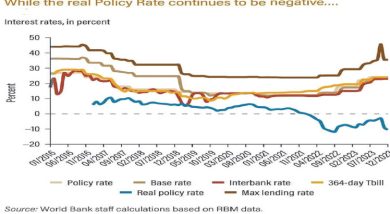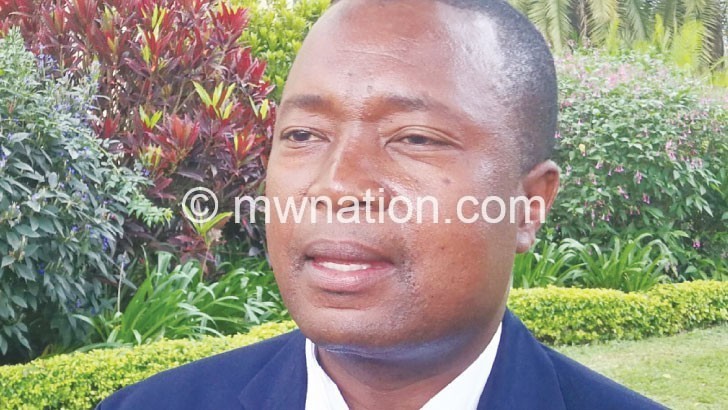Experts expect bank rate to remain high
All  Market analysts in Malawi have predicted that bank interest rates are likely to remain high as government tries to stabilise the economy in 2013.
Market analysts in Malawi have predicted that bank interest rates are likely to remain high as government tries to stabilise the economy in 2013.
In its annual economic report for 2012, Nico Asset Managers have said the monetary policy is expected to be fairly tight throughout 2013 as government strives to control inflation and support the floating kwacha.
“High interest rates are likely to result in reduced private sector investment and growth. High borrowing costs may also result in increased risk of defaults of existing liabilities and foreclosure of property pledged as security. This may dampen the performance of the property market.
“Increase in rates on the money market may also result in investor shift from the stock market to money market as rates become attractive,” says the investment and advisory firm in the report.
To support the value of the kwacha and tame inflation, the Reserve Bank of Malawi (RBM) has been following a tight monetary policy since it devalued and floated the currency in May 2012.
Thereafter, RBM adjusted its base lending rate by three percentage points to 16 percent as part of measures aimed at strengthening monetary policy in context of a liberalised exchange rate and in line with non food inflation.
In July, the bank rate rose to 21 percent before it went up again in December to 25 percent. As a result, commercial bank base lending rates increased to about 36 percent from an average of 17.75 percent in May.
Experts have, however, argued the monetary policy can only be effective if government tightens the noose on the fiscal policy.
The Economics Association of Malawi (Ecama) recently contended that the effectiveness of the monetary policy rests in part on tight fiscal discipline, bearing in mind that 2014 is an elections year and government is likely to be tempted to overspend.
Indigenous Business Association of Malawi (Ibam) president Mike Mlombwa said high interest rates is one of the stumbling blocks in doing business in the country and has urged government to unscrew the nuts a bit.
“Borrowing is very prohibitive. We expected every policy government follows to benefit the economy. It is, however, unfortunate that we are going through this economic pain.
“We suggest that government should encourage investments in projects that help the country to generate foreign exchange, create employment and substitute imports,” said Mlombwa.
Nico Asset Managers report also predicts that the kwacha will continue depreciating although at a slower pace as the currency has shown some signs of stabilising.
“Donor inflows will continue to provide support to the currency during this lean time until the next tobacco marketing season which commences sometime in March.
“Following the higher kwacha equivalent earnings achieved in the previous tobacco season due to the devaluation of the kwacha, we expect tobacco produced for sale in the next marketing season to increase,” says the report.
It also says as a result of a weakening currency, external liabilities for companies that have foreign currency liabilities will increase on their balance sheet.
It further adds that weakening of the currency will also result in soaring inflation; hence, reducing disposable income and increasing the cost of capital as authorities increase interest rates to contain the rising inflation.
It also notes that depreciation of the kwacha will result in reduced demand for forex; hence, improving forex availability which may boost industrial production.





